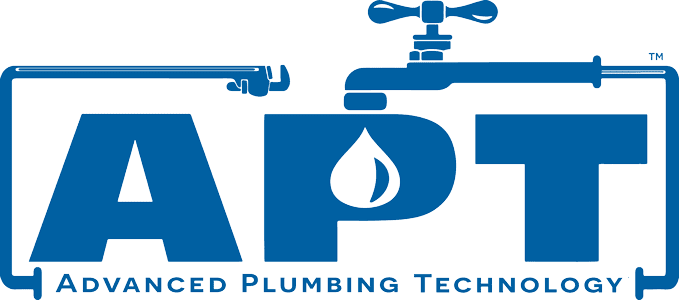Emergency Plumbing Solutions: Handling Sudden Water Woes
September 23rd, 2023Posted by Brian Shoemaker
Dealing with the Deluge
Water, the essence of life, can quickly turn from a friend to a foe when plumbing emergencies strike. A burst pipe, a clogged drain, or a malfunctioning water heater can lead to chaos and disruption in our daily routines. In these moments, having a solid understanding of emergency plumbing solutions becomes essential. This article delves into the realm of sudden water woes, offering insights and practical tips on how to handle such situations efficiently. So, let’s dive right in and explore the world of emergency plumbing!
Recognizing the Red Flags
Before we jump into solutions, it’s crucial to recognize the early warning signs of potential plumbing problems. This can save you from being caught off guard by a sudden plumbing emergency. Keep an eye out for:
- Dripping Faucets: A dripping faucet might seem insignificant, but over time, it can lead to significant water wastage and even a larger leak.
- Slow Draining Sinks: If your sinks are slow to drain, it could indicate a developing clog in the pipes. Addressing it promptly can prevent a complete blockage.
- Low Water Pressure: A sudden drop in water pressure might indicate a leak or a more complex issue within your plumbing system.
- Unusual Noises: Gurgling sounds in the drains or banging pipes could signal a blockage or air trapped in the system.
Immediate Steps to Take
When faced with an emergency plumbing situation, swift action can make a significant difference. Here’s what you can do:
- Shut Off the Water: The first step is to locate your main water shut-off valve and turn it off. This can prevent further water damage while you assess the situation and wait for professional help.
- Contain the Leak: If a pipe bursts, wrapping it with rubber or using a pipe clamp can help contain the leak temporarily. Similarly, placing a bucket under a dripping ceiling can prevent water from spreading.
- Open Drains and Faucets: If you suspect a pipe is frozen, opening faucets and drains can relieve pressure in the system, reducing the risk of a burst pipe.
- Turn Off Appliances: If a plumbing emergency involves an appliance like a water heater, turn it off to prevent further damage or gas leaks.
Common Emergency Scenarios and Solutions
- Burst Pipes:Burst pipes can flood your home within minutes. To tackle this situation:
- Turn Off Water: Shut off the main water supply.
- Drain the System: Open all faucets to drain the remaining water in the pipes.
- Patch Temporary Leaks: Use pipe repair kits or rubber to temporarily patch the burst area.
- Call a Professional: Contact a plumber to assess and fix the pipe permanently.
- Clogged Drains:A clogged drain can disrupt daily activities. To address it:
- Boiling Water: Pouring boiling water can break down minor grease or soap clogs.
- Plunger: Use a plunger to dislodge the clog. Make sure to cover overflow openings for better suction.
- Natural Remedies: Baking soda and vinegar followed by hot water can help break down organic clogs.
- Snake/Auger: A drain snake or auger can clear stubborn clogs located deeper in the pipes.
- Overflowing Toilet:Dealing with an overflowing toilet requires quick action:
- Turn Off the Water: Locate the toilet’s water supply valve and turn it off.
- Plunger: Use a toilet plunger to try and dislodge the blockage.
- Coat Hanger: In some cases, a straightened coat hanger can break up the clog.
- Call a Professional: If the problem persists, it’s best to call a plumber to avoid further damage.
- Water Heater Malfunction:A malfunctioning water heater can lead to cold showers or worse:
- Power/Gas Supply: For electric heaters, ensure it’s receiving power. For gas heaters, check the pilot light.
- Temperature Settings: Make sure the thermostat is set correctly.
- Pressure Relief Valve: If there’s excessive pressure, the relief valve might have opened. Consult the user manual to close it.
- Professional Help: If you’re unsure about troubleshooting, call a plumber or water heater technician.
Preventing Future Emergencies
While handling emergencies is crucial, prevention is even better. Here are some preventive measures to consider:
- Regular Maintenance:Schedule routine plumbing inspections to catch potential issues before they escalate.
- Mindful Flushing and Draining:Educate your household about what can and cannot be flushed or drained to avoid clogs.
- Insulation:Insulate pipes in colder areas of your home to prevent freezing and bursting during winter.
- Temperature Control:Set your water heater’s temperature to prevent scalding and save energy.
- Avoid DIY Experiments:While DIY fixes can be tempting, some plumbing tasks require professional expertise.
Conclusion: Preparedness is Key
Emergencies have a way of catching us off guard, but with a bit of knowledge and preparation, you can minimize the damage and stress they cause. By recognizing warning signs, taking immediate action, and knowing when to call in the professionals, you can navigate through various plumbing emergencies with confidence. Remember, preparedness is key when it comes to handling sudden water woes, and a little proactive effort can go a long way in safeguarding your home and peace of mind.
